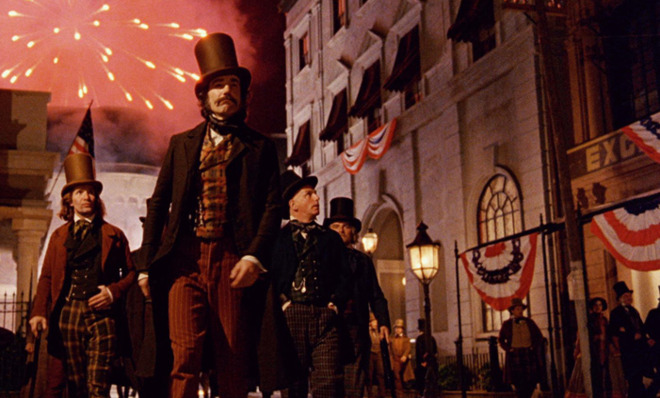The Know Nothings were right on mass immigration
For better or worse, America will change


A free daily email with the biggest news stories of the day – and the best features from TheWeek.com
You are now subscribed
Your newsletter sign-up was successful
In the 1830s, the town of Norwalk, Conn., began to attract Irish Catholic immigrants, and a parish, St. Mary's, was established for them. Hardly anyone noticed or cared much at first. Irish immigrants were just a pitiable minority of illiterate scamps. But they kept coming, and were increasingly unwelcome. In 1856, their wooden parish was burned down by a Know Nothing mob. The cross on the steeple was sawed off.
Hoping to make a statement about their faith and their determination to stay, the people of St. Mary's rebuilt their church in stone. My family worships in that building today, using the same Latin prayers that their predecessors did.
Know Nothings wanted to stop mass immigration. They wanted to bar Catholics from holding public office. Know Nothings had their greatest "success" in driving Irish Catholics out of Louisville, where riots killed somewhere between 20 and 100 Catholics and inspired thousands to leave town. They were not a fringe movement. Know Nothings won nearly every statewide office in Massachusetts in the mid-1850s.
The Week
Escape your echo chamber. Get the facts behind the news, plus analysis from multiple perspectives.

Sign up for The Week's Free Newsletters
From our morning news briefing to a weekly Good News Newsletter, get the best of The Week delivered directly to your inbox.
From our morning news briefing to a weekly Good News Newsletter, get the best of The Week delivered directly to your inbox.
But if Know Nothingism survives at all, it is as a deeply recessed gene within American politics. It lives in the "Blaine Amendments" to state constitutions. You can see it re-emerge in a sophisticated way when The Atlantic published a 1930s thumbsucker about the incompatibility of American principles of government with presidential candidate Al Smith's Roman Catholic religion. When a more paranoid strain pops up these days, as it did in a Jamie Steim column last month, we mock it. No one considers Riverdance a threat to Americanism.
The only modern representation of Know Nothings is in Gangs of New York, where Daniel Day-Lewis plays Bill "the Butcher" Cutting, the leader of a nativist political gang. Cutting was based on a real-life figure, William Poole. In the movie he's written as a charming local terrorist, explosive, bigoted, and magnetic.
Yet as I've thought about Bill the Butcher and his ideological allies, who burned down my own parish's church, I can't shake the idea that history vindicated many of their views on mass immigration.
We've mostly forgotten the Know Nothings and their movement. High school students might run their eyes over an anti-Catholic cartoon by Thomas Nast. In my own public education we were ushered past this period quickly in the run-up to the Civil War: Just one more unfortunate instance of prejudice in American history. Just remember "Rum, Romanism, and Rebellion" for the test.
A free daily email with the biggest news stories of the day – and the best features from TheWeek.com
In important ways, they were mistaken. The Know Nothings were wrong to think that Irish immigrants would remain illiterate and unwashed. Their predictions that America would be made into an ignorant and crippled vassal of the Roman pontiff were wrong, too. But in today's canonical view of American history, we freely admit and even celebrate exactly the consequences of mass immigration that they feared: The way it transformed our country into something new and rearranged political power within it.

Imagine sitting down with Bill the Butcher and describing the later years of Tammany Hall, or the 20th-century political machine built by Richard J. Daley, which dominated Chicago politics for so long. Imagine telling him about the Al Smith dinner, where presidential candidates and the cardinal archbishop of New York trade jokes and drinks.
Imagine telling him of the transformation of Boston. Once it was a Protestant city nearly on par with Geneva and London. Within a few generations, the future Taoiseach of Ireland, Eamon de Valera, would be pleading with 50,000 people at Fenway Park for financial support in his violent revolution abroad. Boston would be practically emptied of Protestant influence, and even become the locus of illegal financial support for anti-Protestant Irish terrorism abroad.
Sometimes Know Nothings suffered under the delusion that immigrants were the ones who invented American patronage politics. That's not true. But the power of Irish machine politics combined with the financial might provided by growing municipal coffers undermined the idealized vision of of America as a genteel Protestant republic, replacing it with the governing style of a mass democracy.
No one laments mass Irish immigration to America anymore because assimilation runs two ways. Immigrant groups become Americanized, and America is transformed, too. History and the democratic political process reconciles us. But in the meantime the fear of diminished political influence in today's restrictionists is very real — and plainly justified by history. The Know Nothings understood correctly, if too late, that the stakes of mass immigration doomed the social arrangements they liked and the ideals they cherished. We now consider those arrangements and ideals disreputable and unjust. The opprobrium of the present is a sign of how thoroughly they were defeated.
Last week, I wrote that the Republican Party would survive immigration amnesty because it would adapt, just as it did over 100 years ago when it had to adapt to mass Irish immigration. But even as mass immigration leaves the GOP alive, it will morph our ideological battles, and alter the distribution of political, cultural, economic, and religious power in America. No one is trying to burn St. Mary's down now.
Michael Brendan Dougherty is senior correspondent at TheWeek.com. He is the founder and editor of The Slurve, a newsletter about baseball. His work has appeared in The New York Times Magazine, ESPN Magazine, Slate and The American Conservative.
-
 Sepsis ‘breakthrough’: the world’s first targeted treatment?
Sepsis ‘breakthrough’: the world’s first targeted treatment?The Explainer New drug could reverse effects of sepsis, rather than trying to treat infection with antibiotics
-
 James Van Der Beek obituary: fresh-faced Dawson’s Creek star
James Van Der Beek obituary: fresh-faced Dawson’s Creek starIn The Spotlight Van Der Beek fronted one of the most successful teen dramas of the 90s – but his Dawson fame proved a double-edged sword
-
 Is Andrew’s arrest the end for the monarchy?
Is Andrew’s arrest the end for the monarchy?Today's Big Question The King has distanced the Royal Family from his disgraced brother but a ‘fit of revolutionary disgust’ could still wipe them out
-
 The billionaires’ wealth tax: a catastrophe for California?
The billionaires’ wealth tax: a catastrophe for California?Talking Point Peter Thiel and Larry Page preparing to change state residency
-
 Bari Weiss’ ‘60 Minutes’ scandal is about more than one report
Bari Weiss’ ‘60 Minutes’ scandal is about more than one reportIN THE SPOTLIGHT By blocking an approved segment on a controversial prison holding US deportees in El Salvador, the editor-in-chief of CBS News has become the main story
-
 Has Zohran Mamdani shown the Democrats how to win again?
Has Zohran Mamdani shown the Democrats how to win again?Today’s Big Question New York City mayoral election touted as victory for left-wing populists but moderate centrist wins elsewhere present more complex path for Democratic Party
-
 Millions turn out for anti-Trump ‘No Kings’ rallies
Millions turn out for anti-Trump ‘No Kings’ ralliesSpeed Read An estimated 7 million people participated, 2 million more than at the first ‘No Kings’ protest in June
-
 Ghislaine Maxwell: angling for a Trump pardon
Ghislaine Maxwell: angling for a Trump pardonTalking Point Convicted sex trafficker's testimony could shed new light on president's links to Jeffrey Epstein
-
 The last words and final moments of 40 presidents
The last words and final moments of 40 presidentsThe Explainer Some are eloquent quotes worthy of the holders of the highest office in the nation, and others... aren't
-
 The JFK files: the truth at last?
The JFK files: the truth at last?In The Spotlight More than 64,000 previously classified documents relating the 1963 assassination of John F. Kennedy have been released by the Trump administration
-
 'Seriously, not literally': how should the world take Donald Trump?
'Seriously, not literally': how should the world take Donald Trump?Today's big question White House rhetoric and reality look likely to become increasingly blurred
